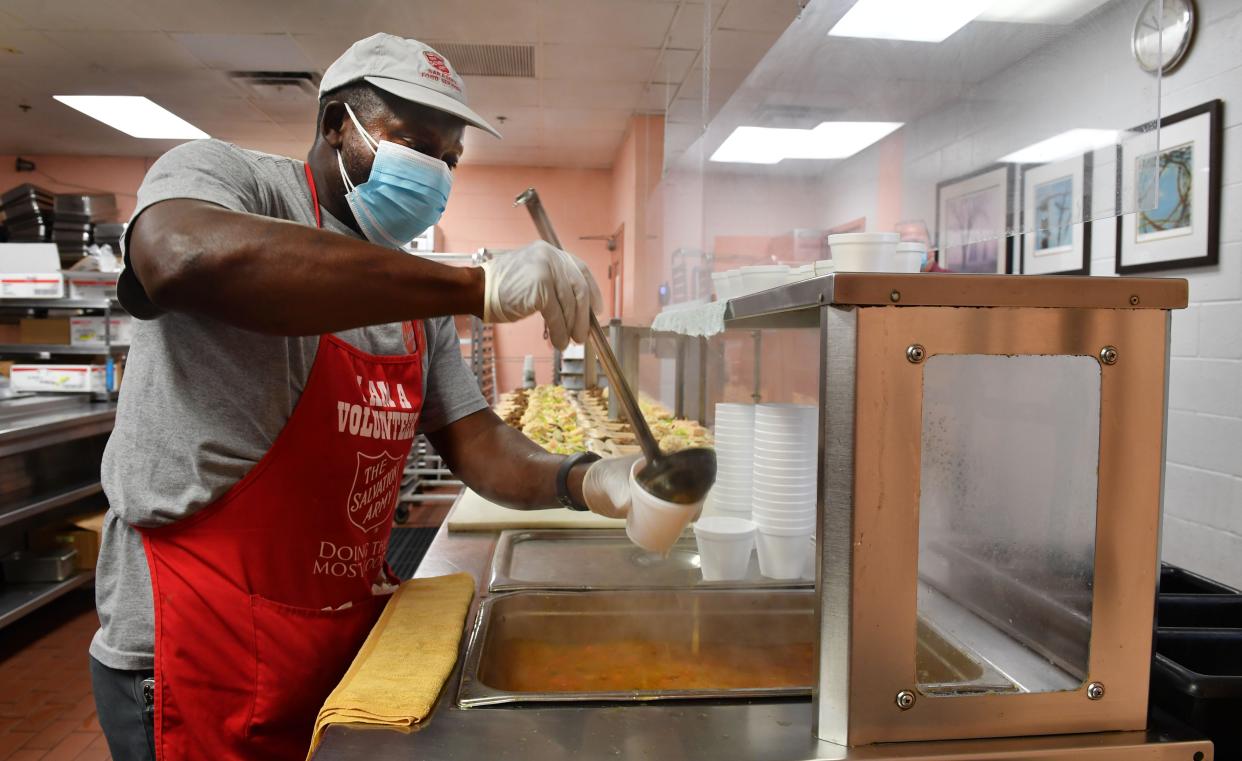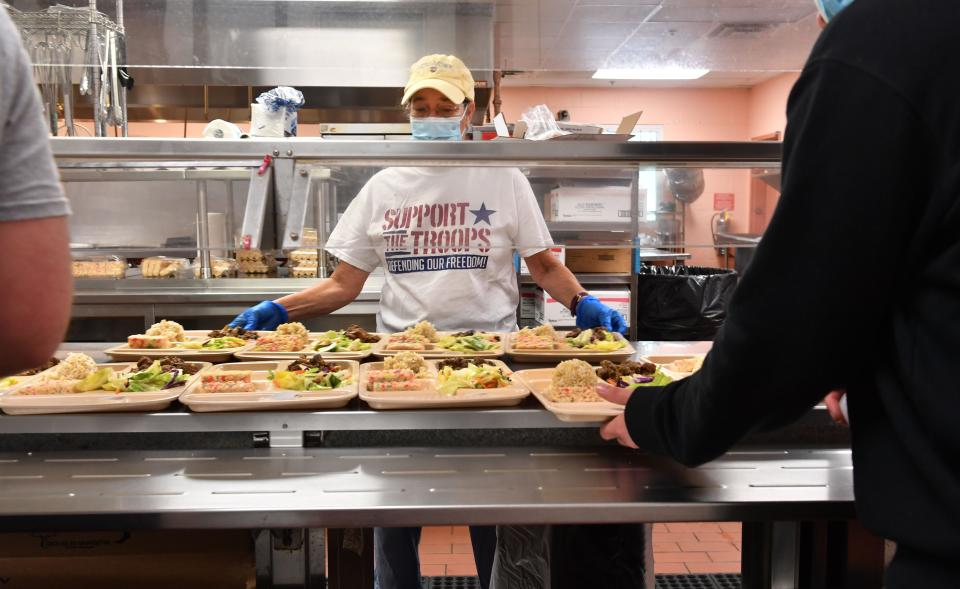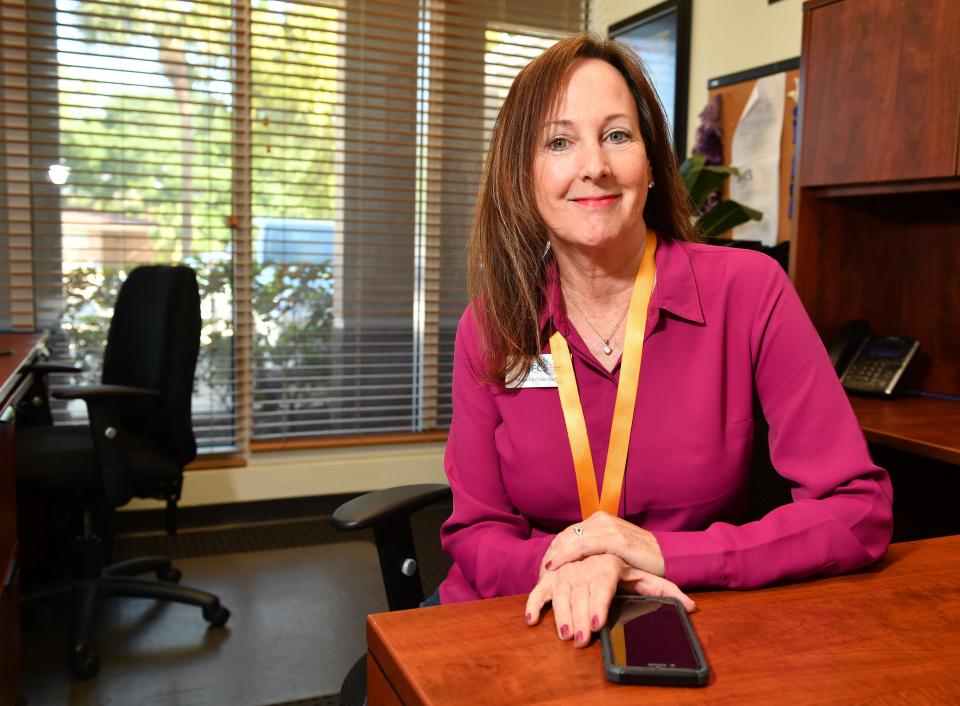Salvation Army cuts services as Sarasota-Manatee nonprofits struggle

From the start of the pandemic through the current housing crisis, area nonprofits have been a lifeline for a deluge of residents struggling to stay afloat through illness, job loss or skyrocketing rents.
But now – after successive waves of hardships hitting both the people they serve and their own employees – nonprofits are taking on water, too.
A recent survey conducted by the United Way Suncoast reveals that a combination of surging demands for services, soaring costs and stagnating donations is taking its toll on area nonprofits.
Housing crisis: Nashville housing model might help thousands in Sarasota-Manatee, experts hope
Childcare: Sarasota's Barancik Foundation to focus on early childhood learning
Namely, the agencies report alarming staffing shortages, fundraising deficits and mental health concerns for both clients and staff – challenges that threaten services for countless hurting households who rely on them for help.
In the case of the Salvation Army of Sarasota County, the impact has already hit.
Starting in May, the agency was forced to cut its free dinner and shower services for members of the public who are not enrolled in its programs.
“We just don’t have the manpower to keep up with that,” said Brenda Downing-Wiggins, the organization’s director of operations.
Employees are facing the same housing crunch as the clients they serve, Downing-Wiggins said.
“In the last three to six months, we probably lost I would say 20% to 30% of our staff due to the fact that they can’t afford to live in the area and they need to move,” she added.
The organization is currently at 78% staffing capacity, down from a normal level of 95%, she said.
“Just the ability to get applicants has never been this challenging,” she added.

Housing shortages, rental rates increase need for services
At the same time, the need for services is greater than ever. Skyrocketing rents and a lack of affordable housing are sending people to their doorsteps who never faced homelessness before.
What’s more, the agency was unable to hold its big annual in-person fundraiser last year due to the pandemic, resulting in a major loss of income just as food and utility expenses were going through the roof.
The drop in labor and revenue and increased demand led to tough choices in scaling back services for clients.
“The first thing we looked at was if there is something else in the community for them because we don’t ever want to cut away a safety net,” Downing-Wiggins said.
Housing Crisis: Sarasota Housing Authority opens waiting list for Section 8 vouchers
Government Response: Sarasota County Commission commits $25 million in federal funds to affordable housing
But for many people who work during the day and depend on that shower and warm dinner, they will have nowhere else to turn.
Randall L. Wright is one of them. The 58-year-old Sarasota man works day-labor jobs in construction until late afternoons or early evenings – long after the free meals, showers and laundry at Remnant Cafe or Resurrection House are closed.
Amid the housing crisis, having to sleep outside after recently getting out of prison while fighting to clear his record, Wright said his efforts to get his life on a new career path can feel herculean in the face of declining services.
"I feel like I'm pushing several boulders up a hill," he said.
Tammy Burns, the director of homeless ministry at Remnant Cafe, anticipates that the cut in the Salvation Army's services will translate into more vulnerable people needing to miss work in order to visit her agency or Resurrection House during the day.
"I think most of them view it as one more thing against them, that 'we're trying trying trying, and this is one more thing that has been put as an obstacle to us succeeding,'" she said.
A ripple effect
The problems at nonprofits will continue to compound the hardships of area residents, said Josh Dunn, United Way Suncoast senior director for investments and partnership strategies.
“Community-based organizations are one of the first places those families and business owners turn to for support during difficult times,” said Dunn. “If those nonprofits are not able to receive families and provide support due to staff shortages and lack of funds, folks will fall through the cracks."
The United Way Suncoast survey, conducted in March, involved 50 nonprofits in its five-county service area – which includes Sarasota, Manatee, DeSoto, Pinellas and Hillsborough counties.
Results mirrored those from last fall’s statewide survey of nonprofits conducted by Florida Nonprofit Alliance, revealing severe strain on agencies amid rising operating costs and escalating demand for services.
Stress and mental health concerns
In addition to labor shortages, another big area of concern for the nonprofits following waves of anxiety-inducing crises is the mental and physical health of both clients and staff, the survey showed.
At Big Brothers Big Sisters of the Sun Coast – which serves 10 counties including Sarasota, Manatee, DeSoto and Charlotte – leadership responded to the severe stress on staff and clients by ramping up its emphasis on mentoring and emotional support, said Joy Mahler, president and CEO.
While addressing economic pressures through help from area foundations – supplying staff with laptops to let them work remotely and aiding with transportation costs and rising gas prices – leaders brought in a human resources specialist to zero in on mental health needs, too.
“We are focused more on the emotional needs of our staff than we are at the moment on training. We are going to make it a fun day,” she said.
As agencies rally to prevent burnout among their staff, for caseworkers in the trenches, every day on the job can feel like emergency room triage.
Some struggle not to get overwhelmed by the desperation in the voices of callers, compassionately steering them toward possible solutions.

“I just pick up the phone, call the person, let’s see what we have, like a doctor, bring it in and get it x-rayed and look at the situation,” said Susan Schoengold, coordinator of Jewish Financial Assistance and Jewish Care Management at JFCS of the Suncoast.
Her husband is also a source of support – greeting her with homemade baked ziti after a hard day – as is her 92-year-old mother, who lived through the Great Depression.
But even for Schoengold – who has been praised by clients for her caring and can-do approach – this housing emergency seems different, the solutions she seeks for clients increasingly elusive, with no end in sight.
At the close of the workday, the stories stay with her – the seniors on fixed income priced out of their homes, the disabled single mother living in her car.
This could happen to anyone. How long, she said she wonders, before it happens to me.
“Maybe it’s affecting me even though I’m so positive,” she said. “But when the day is done, I’m going to bed at night with some major fear of my own.”
United Way Nonprofit Survey
A March survey done by United Way Suncoast of area nonprofits found an important social safety net under serious levels of strain. Some of the main results:
60% of respondents said they were very concerned, 26% somewhat concerned, about maintaining adequate staff
62% said they were very concerned, 22% somewhat concerned, about providing adequate compensation and resources for employees
60% said they were very concerned, 20% somewhat concerned, about increased costs and expenses
52% said they were very concerned, 36% somewhat concerned, about employees’ physical and/or mental health
54% said they were very concerned, 40% somewhat concerned, about clients’ physical and/or mental health
38% said they were very concerned, 28% concerned, about the loss of income and revenue
44% said they had had clients pass away due to COVID-19 or complications, while 10% had lost staff members to the virus
This article originally appeared on Sarasota Herald-Tribune: Salvation Army of Sarasota cuts free dinner, shower services to public

